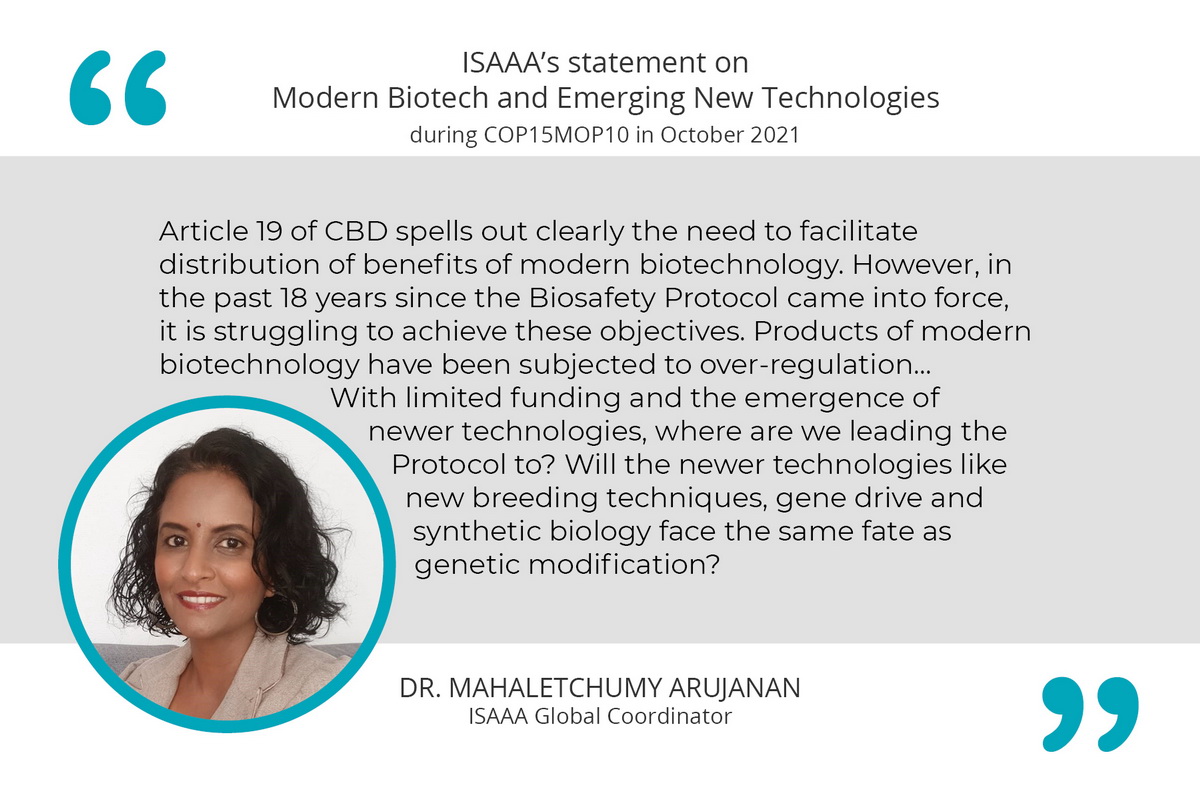ISAAA Statement: Modern Biotech and Emerging New Technologies

I speak on behalf of International Service for the Acquisition of Agribiotech Applications (ISAAA) an organization that supports sustainable agriculture, knowledge transfer to support resource poor farmers, youth and women empowerment in agriculture, and alleviation of malnourishment among the poorest children in the world.
As we work towards post-2020 Global Biodiversity Framework to achieve our biodiversity goals by 2050, it is pivotal to realise that science plays a huge role in conserving and sustainable utilization of genetic resources.
The pandemic was a great teacher showing us how technology is a crucial problem solver. We are seeing the world moving slowing towards endemic. Thanks to gene technology that took the central stage.
Farmers around the world are facing endemics everyday with crop and animal diseases. This is hardly noticed or appreciated by the masses who buy our foods from the supermarket. We need to support them with sustainable agricultural tools. ISAAA believes CBD and Cartagena Protocol could play an effective role here. We should not allow the unfounded risk perception to overshadow benefits of modern biotechnology.
Article 19 of CBD spells out clearly the need to facilitate distribution of benefits of modern biotechnology. However, in the past 18 years since the Biosafety Protocol came into force, it is struggling to achieve these objectives. Products of modern biotechnology have been subjected to over-regulation. Non-science based implementation of regulations are stifling research and causing indefinite delays, making modern biotechnology products beyond reach for developing and least developed countries.
With limited funding and the emergence of newer technologies, where are we leading the Protocol to? Will the newer technologies like new breeding techniques, gene drive and synthetic biology face the same fate as genetic modification? We need to understand that all these techniques are only making use of natural mechanisms in living organisms and ignoring them is disrespecting what Mother Nature has blessed us with.
Thank you, Chair.
Dr. Mahaletchumy Arujanan
ISAAA Global Coordinator
